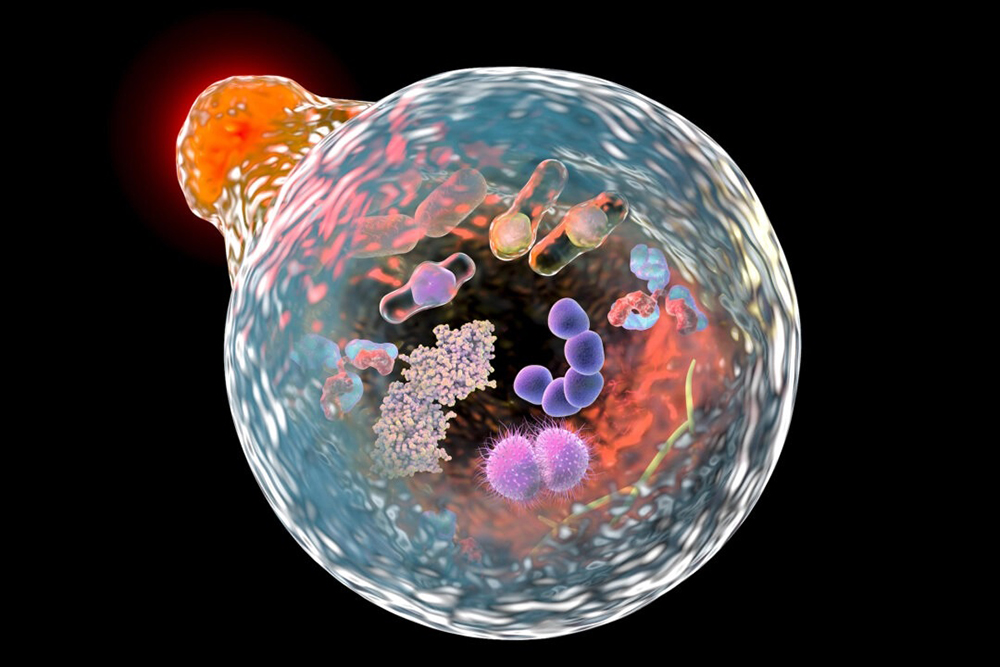|
Getting your Trinity Audio player ready...
|
High blood sugar can lead to a multitude of diseases and health problems, including dysfunction of mitochondria in endothelial cells—the cell’s powerhouses.
By: Teresa Zhang and Kenneth Lin
In recent years, fasting has garnered attention as a weight-loss method, prompting considerable interest and research within the scientific community. Research has found that fasting or calorie restriction can stimulate autophagy in diabetic mice, thereby improving their vascular health.
High Blood Sugar and Vascular Health
High-sugar foods and drinks are one of the main causes of weight gain. Moreover, they may also harm your blood vessels.
Vascular health is closely related to the contraction and relaxation of blood vessels, a process mainly regulated by nitric oxide produced within the blood vessels.
However, a study published in the journal Diabetes, pointed out that, in a state of high blood sugar, the function of endothelial cells within the blood vessels is impaired. To be more exact, the powerhouse of these cells, called mitochondria, malfunctions.
This dysfunction leads to a decrease in the bioavailability of nitric oxide, making it difficult for blood vessels to dilate. This ultimately leads to endothelial dysfunction and other vascular health issues.
Fasting and Autophagy
Since vascular health is closely related to these compounds, how can the body maintain the health of the endothelium? The answer lies in the body’s self-cleaning function—autophagy.
The study stated that the autophagic process in body cells is crucial for maintaining the function of cell mitochondria. When autophagy is activated, cells can eliminate dysfunctional mitochondria, thereby maintaining the total amount of nitric oxide in endothelial cells and improving the health of endothelial cells in blood vessels.
Lei Zhao, who holds a doctorate in biomedical science and is the lead author of the study, stated in an interview with The Epoch Times, that endothelial dysfunction is closely related to diabetic vasculopathy, retinopathy, and nephropathy. Additionally, hyperglycemia, advanced glycation end products (AGEs), and oxidized low-density lipoprotein are the main culprits behind endothelial dysfunction in diabetes.
Autophagy is a multi-step cellular process in the body that eliminates damaged proteins, organelles, and oxidized lipids, while transcription factor EB (TFEB) is the main regulatory factor of autophagy.
The experiments in the study showed that under diabetic and hyperglycemic conditions, the expression and nuclear localization of TFEB in mouse aortic endothelium decreased, leading to impaired vascular autophagy. Upregulating TFEB expression and intermittent fasting were both effective in restoring vascular autophagy in diabetic mice, thus reducing the production of mitochondrial oxidative stress ROS and improving endothelial function.
Ms. Zhao said “The experimental results indicated that dietary intervention through calorie restriction or fasting is an effective method for rescuing endothelial function in diabetes. Additionally, TFEB could serve as a therapeutic target for improving diabetes and diabetic vasculopathy.”
Expert Suggests Eating Less for Dinner
Dr. Jingduan Yang, chief executive officer of the Northern Medical Center in New York, shared in The Epoch Times that he prefers to eat between 7 a.m. and 3 p.m., and either skips dinner or has a light meal. He noted that skipping breakfast and eating more at dinner may affect the quality of sleep and digestion at night.
While fasting focuses on the timing of meals rather than calorie intake, Dr. Yang pointed out that if not eating for 16 hours leads to a compensatory mentality during meals and results in overeating, it can negate the effects of fasting.





